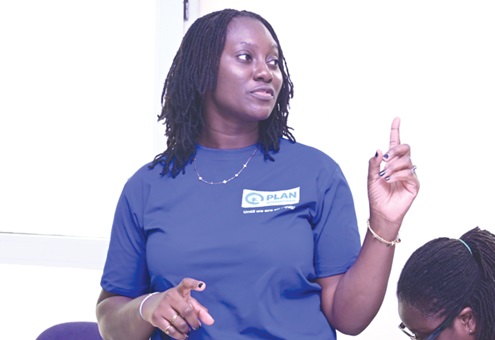The Project Manager of She Leads Project at Plan International Ghana (PIGHA), Joyce Obenewaa Darko, has proposed the establishment of sanitary pad banks in the various schools as part of the distribution process of the free sanitary pads programme.
She said the sanitary pad banks could be used as a means of monitoring the distribution and ensuring that the right participants access them.
With the banks, she said, students would only need to fill out a form or a book when picking a box, which should be kept at a place where it would easily be accessed by the students.
Pilot
Speaking during a three-day media training organised by PIGHA for its media partners in northern Ghana, Ms Darko explained that a similar project has been piloted in the Upper West Region, particularly at the Wa Methodist School for the Blind, and “it has worked effectively.”
She said this ensured that only those who needed the pads came for them and believed that if the government adopted this approach, it would help to minimise wastage and ensure that it went to the right people.
Commendation
She commended the government for allocating more than GH¢290 million in this year's budget to distribute free sanitary pads to female students in primary and secondary schools.
She said menstrual poverty remained one of the critical barriers to well-being, education and development of women and girls, particularly those in the rural areas.
She said the programme would also ensure that girls do not miss contact hours during menstruation and contribute to girls' enrolment in school.
The She Leads Programme Manager also called for a sensitisation programme to educate students, particularly boys, to see menstruation as a natural process and to stop teasing girls who soil themselves during that time of the year.
This, she said, would make the girls not have any inhibition when accessing the pads from the bank and would also serve as a platform for menstrual hygiene education.
She Leads
She Leads is a five-year project being implemented by a consortium, with funding from the Dutch Ministry of Foreign Affairs.
The consortium includes Plan International, Defence for Children, Africa Women’s Development and Communication Network and Terre des Hommes, Netherlands.
The objective of the project, which ends in December this year, is to increase the sustained influence of girls and young women on decision-making and the transformation of gender norms in formal and informal institutions.

